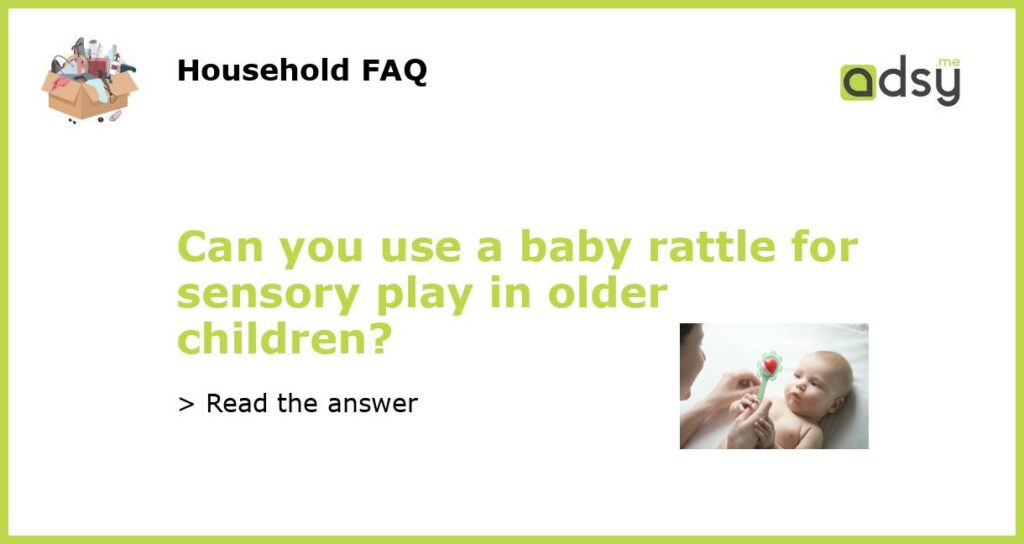What is sensory play?
Sensory play is a type of play that stimulates a child’s senses, encouraging them to explore and learn through touch, sight, sound, taste, and smell. It is a valuable activity for children of all ages because it promotes cognitive, social, and emotional development.
What is a baby rattle?
A baby rattle is a simple toy designed for infants. It is made up of a handle and a bulbous end that contains a small object that makes noise. The handle is easy for babies to grasp, and the sound the rattle makes is appealing to their developing senses.
Can a baby rattle be used for sensory play in older children?
While a baby rattle is designed for infants, it can still be used for sensory play in older children. The sound the rattle makes can be soothing and calming, which can be helpful for children who are feeling anxious or overwhelmed. Additionally, the act of shaking the rattle can be a form of physical therapy, helping children to build strength and coordination in their hands and arms.
How can a baby rattle be used for sensory play in older children?
One way to use a baby rattle for sensory play in older children is to incorporate it into other activities. For example, you could use the rattle as part of a music-making activity, encouraging children to shake the rattle rhythmically along with a song. Another idea is to use the rattle as part of a sensory bin, hiding it among other objects for children to find and explore.
What are some benefits of using a baby rattle for sensory play in older children?
Using a baby rattle for sensory play in older children can have many benefits. It can promote relaxation and stress relief, improve gross and fine motor skills, encourage creativity and imagination, and enhance social skills through group play. Additionally, because the rattle is a simple and familiar object, it can be reassuring for children who may be feeling anxious or uncertain in new environments.






